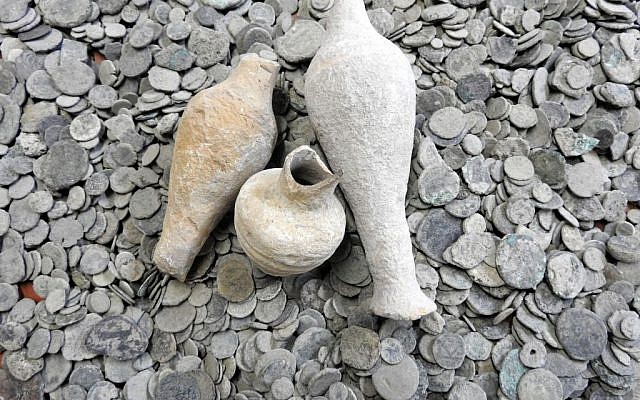Hebrew nametag on ancient wine jar reopens debate on scope of Israelite kingdom
When archaeologists digging in the ruins of an ancient northern town found a few broken pots in the remains of one building last year, they didn’t pay them much attention at first.
But researchers were astonished when a closer review of the clay vessels from Abel Beth Maacah revealed that one of them bore an inscription in ancient Hebrew, Haaretz reported Thursday.Find your Elfa SolutionOur annual Elfa Sals is HERE! Save 30% on Elfa Custom Closets & Shelving for a limited time.Ad by The Container StoreSee More
In fact, the single word was a nametag of sorts. On the jar, believed to be a wine vessel, was simply written: “LeBenayau,” meaning “Belongs to Benayau.”
But that single word could lead experts to rethink their views on the territory of the ancient Kingdom of Israel, according to the report.
Abel Beth Maacah, mentioned in the bible, is located just south of Israel’s border with Lebanon, near the modern-day town of Metula. Benayau is a Hebrew name analogous to the modern Benayahu. But while the pot is believed to be from the 10th-9th century BCE, the Kingdom of Israel had not previously been thought to stretch so far north during that period.
At the time Abel Beth Maacah was situated in a liminal zone between three regional powers: the Aramean kingdom based in Damascus to the east, the Phoenician city of Tyre to the west, and the Israelite kingdom, with its capital in Samaria to the south.

Archaeologists had previously believed the area of the town was largely empty during the 10th-9th century BCE, and that it only came under Israelite rule during the 8th century BCE.
“If the inscription is from the 8th century BCE. then it’s still important but not a big surprise, because we know that during that period, the Kingdom of Israel reached until [nearby] Dan,” Dr. Eran Arie, curator of the Iron Age and Persian Period at the Israel Museum, told the paper.
“But if it’s really from the 9th century BCE, it reopens questions on the connection of this area to Israel and may force us to rethink some of our conclusions. This is not a bad thing: it’s always important to adjust our interpretation when new evidence emerges.”
Of course, one clay jar with a Hebrew word on it does not necessarily indicate that the town was Israelite. But it opens up the possibility, and researchers are now hoping to identify the origin of the clay from which it was made — whether it came from down south or was locally procured — to help them in their investigation.
“The allegiance of this city and the identity of the population in the 10th-9th centuries BCE. are a big debate,” said Dr. Naama Yahalom-Mack of Hebrew University, one of the leaders of the dig. “What was their connection to Israel? Were the religion, the language, and the culture the same as in Israel? We are looking for evidence of Abel belonging politically to one entity or another, while it is also possible that it was an independent city-state.”
She added: “This inscription could be evidence that the city’s administration was in the hands of people who spoke Hebrew with Yahwistic names. It was found in a warehouse that apparently belonged to a local and he had a Yahwistic, Israelite name: this can give us a hint as to who this city belonged to during this time.”
This post appeared first at https://www.timesofisrael.com/hebrew-nametag-on-ancient-wine-jar-reopens-debate-on-scope-of-israelite-kingdom/
See all posts in Biblical Archaeology News & Opinion
Upcoming Tours
We would love to walk with you in the Holy Land. Here are upcoming opportunities:
Jun 27 — Jul 09, 2024 Egypt & Jordan Walking Tour (easy pace)Led by George DeJong |
All trip dates subject to change.